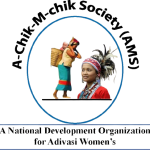Achik Michik Society (AMS) A National Development Organization For Indigenous Woman’s.
STORY OF
ACHIK MICHIK SOCIETY (AMS)
We live in a world where inequality, poverty, and underdevelopment continue to shape the daily lives of millions. In this world, access to basic human rights such as food, healthcare, and education remains out of reach for many. Among those most affected by this inequality are women and children — especially in marginalized and indigenous communities. In Bangladesh, where the population stands at over 140 million with a growth rate of 1.42%, such issues are even more pronounced in rural and indigenous areas like Madhupur in Tangail District.
For decades, the women of Madhupur, particularly from the indigenous Garo and Koch communities, have faced multiple layers of marginalization. These include economic hardship, social neglect, cultural discrimination, and limited access to public services. Despite being bearers of rich cultural traditions and vital contributors to their households and communities, indigenous women were often left voiceless in decision-making processes, undervalued in society, and underrepresented in public and political life.
Roots of the Struggle
Historically, indigenous women in Madhupur lived closely with nature, practicing sustainable farming, traditional healing, and preserving their language and customs. However, rapid changes in population, land use, and governance systems eroded their traditional livelihoods. The Total Fertility Rate (TFR) in the country was 3.00, and the Contraceptive Prevalence Rate (CPR) was only 58.1%, meaning that population growth, poor maternal health, and lack of family planning were ongoing challenges in these remote areas. This led to increased pressure on natural resources and strained the already fragile economic condition of these families.
As the nation modernized, indigenous women found themselves further marginalized. Their languages were slowly disappearing, their role in society diminished, and their dignity often questioned. The neglect and disregard they faced were not only from broader national structures but also from within their own communities, influenced by patriarchal traditions.
The Emergence of Achik Michik Society (AMS)
In response to these harsh realities, a group of passionate and committed individuals from the Garo community came together on December 25, 2006, to form the Achik Michik Society (AMS). The name itself reflects the vision: “Achik” means “Garo” and “Michik” means “women” — symbolizing a journey toward justice, dignity, and development for the Garo people, especially women.
AMS was born out of a vision to build a better future for the disadvantaged, distressed, and deprived groups of society — particularly the women of Madhupur. The society aimed to restore dignity to women, enhance their value in families and communities, and ensure the survival and usage of indigenous languages. Through awareness programs, education, skill development, advocacy, and community mobilization, AMS began to create ripples of change.
On October 22, 2007, AMS was officially registered with the Department of Women Affairs, Government of the People’s Republic of Bangladesh, making its work formally recognized and further strengthening its capacity to bring change.
Impact and Progress
Since its founding, AMS has played a crucial role in:
- Increasing women’s dignity in society by promoting leadership roles for women in community organizations.
- Reducing neglect and undervaluation of women through education and income-generating activities.
- Reviving indigenous languages and cultures, encouraging youth to learn and use their mother tongues.
- Combating early marriage and improving reproductive health awareness, aligning with national goals to manage population growth.
- Empowering women economically by introducing handicrafts, eco-farming, and micro-enterprises.
- Creating safe spaces for indigenous women to voice their concerns and participate in decision-making.
The Ongoing Struggle
While AMS and other local initiatives have made significant strides, the struggle of Madhupur women is far from over. Challenges such as land grabbing, environmental degradation, cultural assimilation, and gender-based violence still exist. But the resilience and unity among these women, fueled by the spirit of organizations like AMS, continue to grow stronger.
Today, the story of Madhupur women stands as a symbol of grassroots resistance and empowerment — a story of how even in a world of inequality, marginalized women can rise, reclaim their voices, and shape a better, more just future.
OURE VISION & MISSION OF THE ORGANIZATION
OUR MISSION
To proper utilization of indigenous women knowledge & industrious in supporting modem information & technology to make a poverty free society, through providing justice and where everyone will be able to live in peace and harmony, injustice free, free from starvation, exploitation and oppression and to enjoy the rightful share of resources belongs to the society and to ensure spiritual needs of the community.
OUR VISION
Achik Michik Society (AMS) amplifies the voices of the pro-poor and marginalized indigenous peoples. This happens as knowledge drawn from our grass roots and global experience is channelled through purposeful relationships with civil society, government, and the like minded organization.
OUR WORKING APPROACH
Direct project implementation for disadvantaged peoples.
- Project Implement through Community based organization (CBOs), TSS.
- Establish intuitional Building (CBO/GK);
- Prioritize the need of the women;
- Right based & Need based approach;
- Work with the oppressed & oppressor.
- Liaison with elite person, local government and religious bodies.
THEMATIC AREA
- Women Empowerment
- Quality Education
- Information & Technology Transferred
- Bilingual education.
- Gender Equity.
- Good-Governance.
- Environment conservation.
- Renewable Energy.
- Population Health.
- Disability.
- Child Rights.
Governance
Achik Michik Society (AMS) is very keen to ensure good governance at level within the organization. Achik Michik Society (AMS) General body, Executive Board, is manned with experienced professionals from different sections of the society like higher qualified, reputed consultants, social worker and intellectuals. The Chairmen of Achik Michik Society (AMS) Board is a freelancer consultant in Livelihood sector. Annual General Meeting (AGM) is held every 3 years and the Executive board provides decisions and guidelines on different policy issues and the matters of urgent management issues.
There are one type of Auditing system is the Organization. The project account are audited as per rules of relevant authority and the sent to the relevant department on monthly. Quarterly and yarely basis as per project guidelines by the organization internal experts. Achik Michik Society (AMS) prepares the external audit report for the calendar year under the guidance of affiliated audit firm of the GOB. Achik Michik Society (AMS) maintains its financial system in a transparent way. It follows the standers financial manual of the Organization for operation/ handling any type treasurer and general secretary of the Organization with the help of approved EC meeting resolution and the approved money is transferred to the project accounts accordingly.
Flourished of Achik Michik Society (AMS)
AMS maintained some Rural Reconstruction Credos as a guide to its people-oriented strategy for development action;
- Learn by doing
- Go to the poor people
- Live among them
- Learn from them
- Plan with them
- Work with them
- Start with what they know
- Teach, by showing
- Not a showcase but a pattern
- Not to conform but to transform
Structure of the Organization
Executive Committee:
The organization has a 9 members executive committee. Members of this committee are elected by the members of the general committee for a period of 03 (three) years performs all responsibilities on behalf of the general committee. The executive committee includes the following members.
Director:
General Secretary is designated as Director of the organization according to the constitution of the organization. He is responsible for over all administration and program.
Implementation. To discharge his duties, he is assisted by sub-ordinate staff. He is responsible for keeping contract with the Govt. and Non- Govt. agencies and donors. The Director is accountable to the executive committee.
Members and Development partner of other Network and Development Organization:
- OXFAM GB- Bangladesh.
- Bikosito nari Network- (DR- Bodiul Alam Majumdar)
- Treasurer of distrcit nari committee.
- Upazila nari forum. (NF)
- Climate change women group member; (Karmo Jibi Nari)
- Member of the Stop Violence Against Women- Tangail.
- Indigenous People Development Services (IPDS)
- Research and Development Collective (RDC)
- Member of World Vision.
- Mebers (GMADCF) of CARITAS.
Our organization has received the following amounts of funding from various donor organizations.
Past Experience on Project implementation:
- Support to Indigenous People in Plain Land. Major Focus: Org. Capacity building, Lobby, Advocacy, Taring, land rights, Safety Net. Output/Outcome: Local Govt. department positive response, Indigenous community aware, org. capacity develop. Working Area: Dist.: Tangail, PS: Madhupur. Donor: OXFAM. Amount:21 lacs. Duration: March 2014.
- People’s Rights to Ancestral Land and Forests (IPRALAF) Major Focus: Land & Forest rights promotion. Output/Outcome: Community people aware on land and forest right, Net work building with like minded organization & Govt. dep. Working Area: Dist. : Tangail & Mymensing, PS: Madhupur, Muktagach &Phulbaria Donor: Action Aid Bangladesh. Amount: 8 Lacs. Duration: June 2015.
- Alternative livelihood promotion. Major Focus:Environment friendly IGP. Output/Outcome: Medicinal plan Cul. Animal Hus. Working Area: Donor: BELA. Amount: 10 Lacs. Duration:Revolving Fund.
Oure Leader's
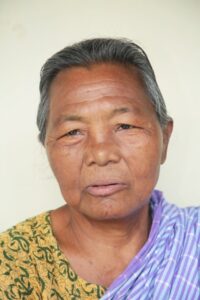
President : Achik Michik Society (AMS)
Bhutia
P.O: PIRGACHA,
PS: Modhupur,
Dist.:Tangail. Bangladesh.
Mobile:
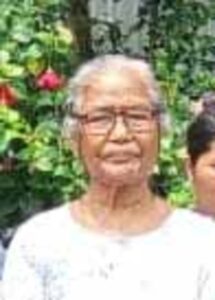
Vice President Achik Michik Society (AMS)
Bhutia
P.O: PIRGACHA,
PS: Modhupur,
Dist.:Tangail. Bangladesh.
Mobile:
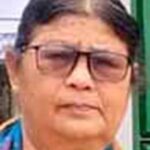
Executive Director Achik Michik Society (AMS)
Bhutia
P.O: PIRGACHA,
PS: Modhupur,
Dist.:Tangail. Bangladesh.
Mobile:
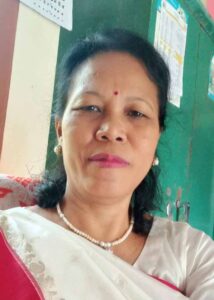
Co-Secretary Achik Michik Society (AMS)
Bhutia
P.O; PIRGACHA,
PS: Modhupur,
Dist. : Tangail.
Bangladesh.
Mobile:
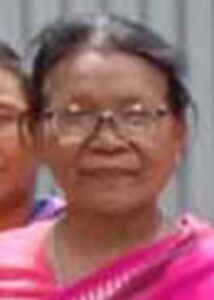
Organizing Secretary Achik Michik Society (AMS)
Bhutia
P.O; PIRGACHA,
PS: Modhupur,
Dist. : Tangail.
Bangladesh.
Mobile:
CONTACT
- Achik Michik Society (AMS) Vill: Bhutia. P.O.: Pirgacha. P.S.: Modhupur. Dist.: Tangail. Bangladesh.
- +8801719-217281
- achickmichick@gmail.com
- sulekhamrong@gmail.com
Social Networks
- yourfbusername
- @twitterhandle
- insta_account
- plusprofilename
- username
